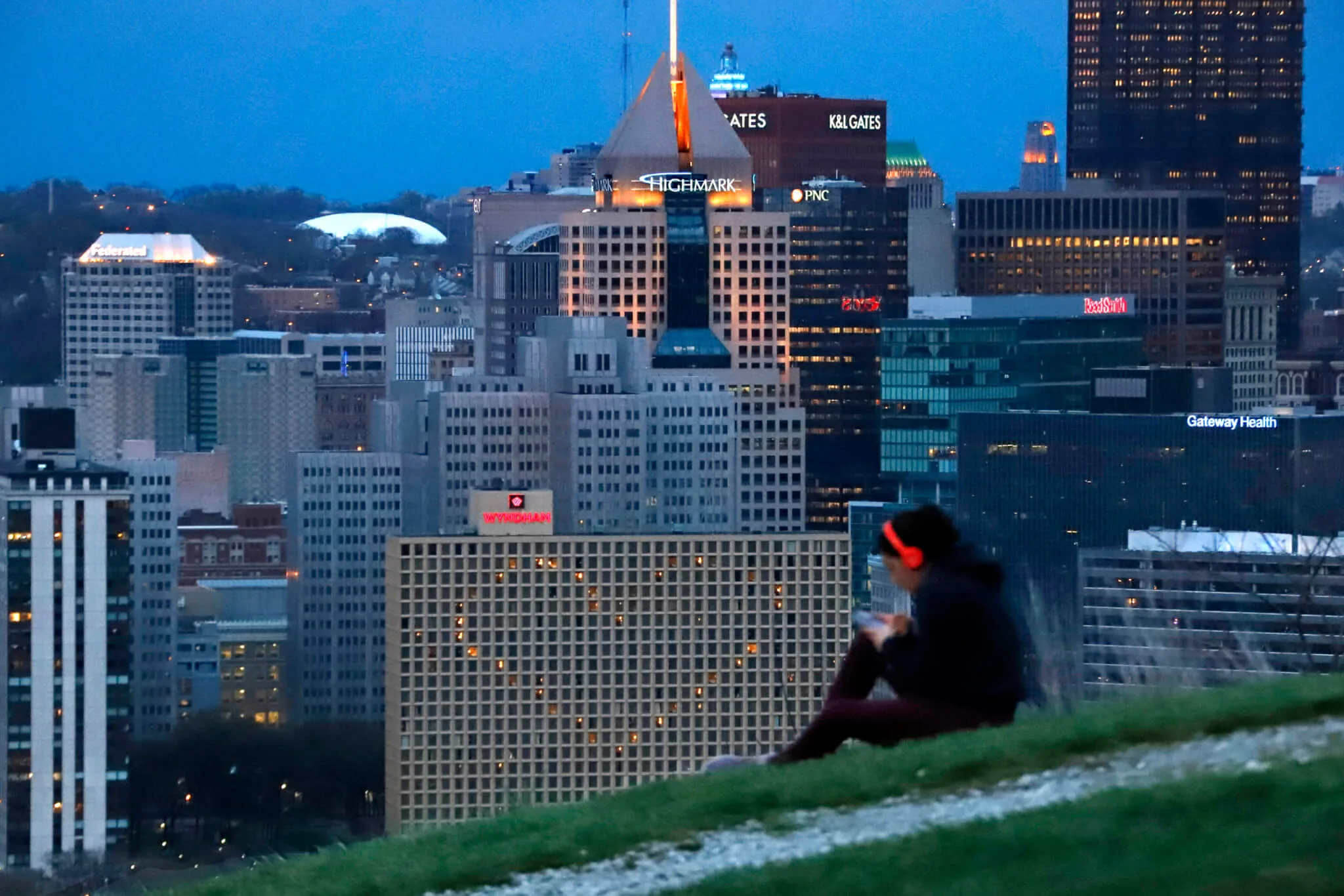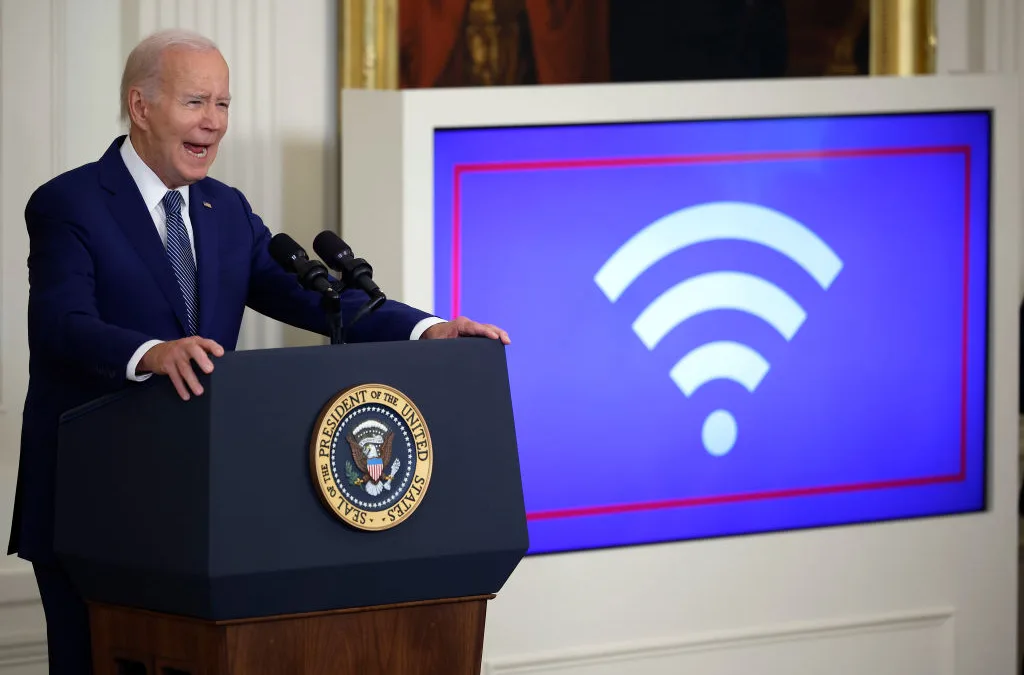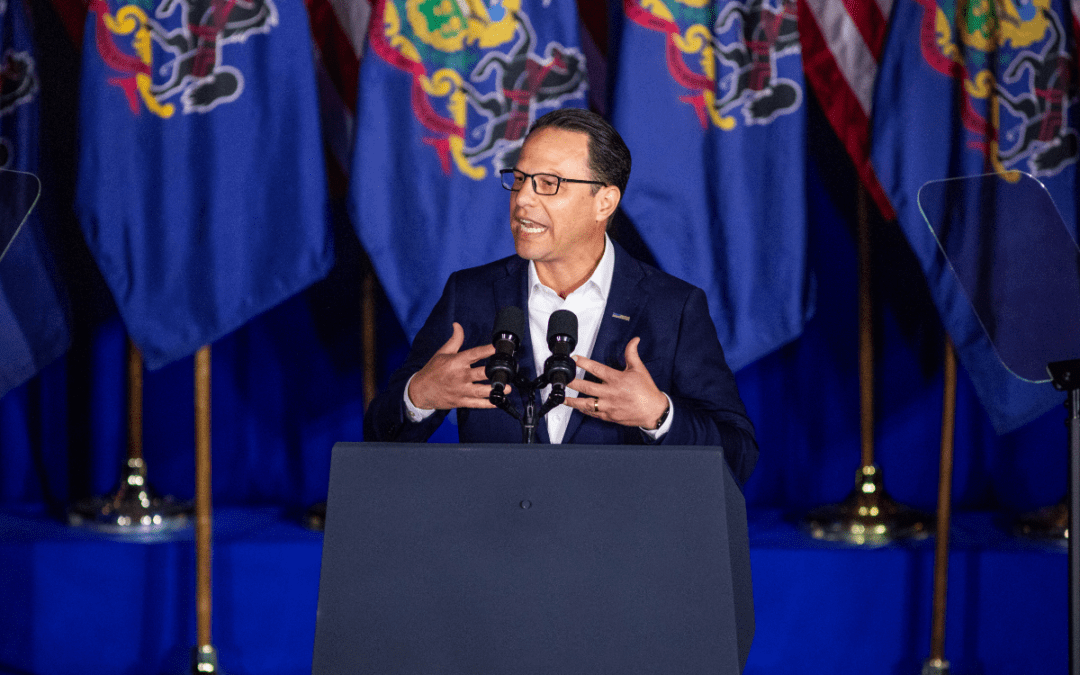
AP Photo/Gene J. Puskar
Here are just some of the ways Pittsburghers have come together to help each other during the pandemic.
Most people know the story of Pittsburgh—the mass exodus that took place when virtually all industry closed its doors on a generation. There’s an energy of make-it-work-no-matter-what generated from the ones who stayed and kept this city alive.
It’s a force that’s still alive and thriving today, even as a pandemic ravages our city, our state, our country. While we have been lucky—by urban measures, in terms of how many cases of COVID-19 that have been reported in Allegheny County where Pittsburgh sits—we’ve learned not to wait for things to get rough. Partially because for many Pittsburghers who aren’t recent tech-industry transplants, things never get all that easy.
In the undertow of health care and self-driving cars, grassroots support systems connect and support Pittsburgh—much like the iconic bridges that define us on postcards.
When the Great Recession hit in 2008, Pittsburghers saw it as an opportunity to turn hobbies into businesses. Today, many of those same makers are stepping up to ensure everyone has access to a face mask.
Some have formed collectives, such as (mask) Makers PGH, a network of makers of everything from bowties (Knotzland) to phone cases (Kerfcase) who have donated time, resources, and skills to supply crucial gear, including cloth face masks, to communities who need it. Operation Face Mask is another group of volunteers that includes makers, film industry set builders, poster deliverers, graphic designers, and others who have mobilized in ways they can, including cutting fabric, bagging, distribution, organizing drop-offs, and so much more.
Workshop PGH is a DIY school and shop that teaches people everything from woodworking to watercolors. Founder Kelly Malone—whom I spoke with as she was in the process of picking up cookies to deliver to the staff at Children’s Hospital—has also joined efforts to address the face mask shortage by leaving mask kits and craft supplies outside the studio every day to help the neighborhood cope with the ongoing challenges of the pandemic.
Individually, artists are rising to the occasion as I’ve seen them do many times before. Meghan Tutulo of 1flychicken made popular “build bridges not walls” T-shirts in 2017 and raised $12,300 for Planned Parenthood of Southwestern PA. Now, in the whirl of the pandemic, she’s shifted her craft and is raffling off stained glass artwork to support the Pittsburgh Food Bank. Tutulo, who grew up in nearby New Kensington, knows what it’s like when a community is overlooked for resources; she puts that empathy into everything she makes.
Meanwhile, other nonprofit organizations have drastically rerouted their mission to address new needs. Shanon Williams started The Wellness Collective this past October after a number of neighbors reached out to her with specific concerns.
“When someone in our community has a need, I think it’s on the community to show up for them,” Williams said. “If someone reached out to me and said they needed $300 for a bill, I could probably just pay it. But I’d rather reach into our community and say, ‘Hey, one of our neighbors needs $300, who has $5 to pitch in?’ I think the practice of community is important.”
The Wellness Collective typically receives monthly donations of $3-$5 from neighbors, which collectively has saved people from homelessness or from getting utilities shut off. Now, with a moratorium on evictions and utilities safe from shut-off, the need isn’t immediate, but it is still imminent: those bills will come due soon enough. For those needs, there is a COVID-19 relief fund that accepts one-time donations. There’s also an option to be a “neighbor,” which signs up volunteers to deliver goods such as food or a thermometer, or work the switchboard to listen to the needs of neighbors and direct them to someone who can help.
Some organizations are more focused on a specific demographic. SisTers PGH is a Black, trans-led community center that “provides supportive services, emergency shelter and housing for the trans and nonbinary communities” in Pittsburgh, according to its site. The members have been working especially hard to provide adequate care and resources to their community who is often the most at-risk and underserved community in general, and the pandemic has elevated that discrepancy.
SisTers founder and president Ciora Thomas, a Pittsburgh native, said her organization has raised around $6,000 for trans people, Black trans and nonbinary people specifically, in Allegheny County to help with COVID-19 relief. Like elsewhere in the country, those communities face the greatest risk in suffering both economically and financially from the pandemic. “So that’s what we’ve been able to do thus far, in addition to having our volunteers deliver groceries and toiletries and things of that nature to not only the trans community but to the entire spectrum of our community.” Historically, Thomas added, this is a community that as a whole has always relied primarily on one another for support.
Worth Manifesto was created by Sandra Villarroel, who wanted to address the local population of unsheltered women with kindness and compassion. What started off as donating leftover food from weddings she worked as a photographer turned into a larger endeavor to address the basic human needs of women without access to housing. She collected donations of toiletries and makeup bags and distributed them to women experiencing homelessness, along with notes of encouragement and humanity. When I spoke with her, she was in the process of picking up a donation of empanadas from Adda, a local coffee shop, to distribute among Pittsburgh’s unhoused population.
Another local organization making a profound difference amid the crisis is 412 Food Rescue, which has been around for five years. The model is so clear at its core: There is food being wasted, so let’s redistribute it to the food insecure. In this time when everything feels insecure, the impact is distilled. They are shoring up over 12,000 volunteers, which is made easier by their simple app that alerts users to where food is available to be picked up and delivered to either a central headquarters or, in the wake of COVID-19, an individual home.
“I don’t know if the scale would have been as fast if this were another city,” said Leah Lizarondo, co-founder and CEO. “I just felt like the ingredients were there in Pittsburgh, starting with a very innovative and risk-taking foundation community where we just came to these foundations and had an idea for this technology which didn’t really exist.” As a transplant, she didn’t understand the “whole Mister Rogers thing” that sculpts the human ideal in the City of Bridges. “Pittsburgh is a city of immigrants from the time when steel was at its peak, to weathering the fall of steel and the whole Mister Rogers’s Neighborhood, you know, being there for your neighbor, that mindset, together with the core philosophy of the technology really went together.”
Beyond these endeavors, there are so many more keeping the city alive, including multiple mutual aid documents circulating online—including this one by Ehrrin Keenan, who knew her knowledge on how to navigate state resources could be helpful to others, and this one moderated by Madeline Phillips and Seth Bush, which provides not only an exhaustive list of resources on how to provide for oneself but also exhaustive ways in which people can volunteer to help others.
Restaurant and bar owners have also stepped up: Spirit, a bar and music venue, reopened its kitchen by first offering free pizza to anyone who couldn’t afford to purchase one, and People’s Indian Restaurant advertises free lunch to anyone in need of a meal, especially those with children.
In each of the dozen interviews I conducted, I felt like I was talking to a hero. But they’re just people, my neighbors, who saw a need and ran toward it.
There are statues of Fred Rogers, Pittsburgh hero, all over town, artsy and sentimental, and even one as a dinosaur with puppets on his tiny T-Rex arms. We take neighborhoods seriously.
In the worst of times, they can divide us into a series of tiny boxes you need a bridge or tunnel or staircase to escape. In the best of times, the times when things should be at their worst, we climb those stairs and cross a bridge to be a neighbor to anyone looking around, as Mr. Rogers suggested years ago, for the helpers.
Politics

736,000 PA households could lose crucial help on their internet bills
Time is running out for the Affordable Connectivity Program, which provides low-cost high speed internet access for over 736,000 Pennsylvania...

What to know about Trump’s legal issues
Over the past year, former president Donald Trump has become the center of not one, not two, not three, but four criminal investigations, at both...

Shapiro aims to eliminate waiting list for services for intellectually disabled adults
HARRISBURG, Pa. (AP) — Gov. Josh Shapiro and his top human services official said Wednesday that the administration has a plan to end a waiting list...
Local News

Conjoined twins from Berks County die at age 62
Conjoined twins Lori and George Schappell, who pursued separate careers, interests and relationships during lives that defied medical expectations,...

Railroad agrees to $600 million settlement for fiery Ohio derailment, residents fear it’s not enough
Norfolk Southern has agreed to pay $600 million in a class-action lawsuit settlement for a fiery train derailment in February 2023 in eastern Ohio,...





